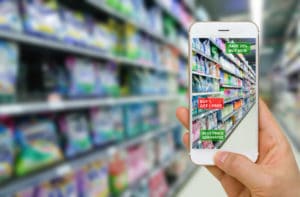The 70th Congress Esomar (European Society for Marketing Research) was held from 10 to 13 September in Amsterdam, with the title: Visionary.
In her introduction, Vanessa Oshima, Chair of the Programme Committee, compared the research industry to the music publishing industry: twenty years ago, an artist's success was reflected in gold records; today, streaming has dethroned the CD...
Referring also to Kodak, she concluded: " Change is inevitable ", with no way back; marketers and researchers need to be visionaries... hence the name of the conference!
That said, Esomar conferences have always been about the future: imagine a professional association inviting its members to retreat into the past! Today, however, the stress of facing up to the challenges of the future is becoming ever greater: in fact, the real challenge is the acceleration of... challenges!
The first keynote speaker was the Dutch giant Philips, which could well have suffered a Kodak-style shipwreck, its main pillars - consumer electronics, small domestic appliances, lighting and healthcare - having undergone unprecedented changes in recent years.
Unlike the Rochester-based firm, the Eindhoven-based company has regularly adapted its scope to keep pace with changing markets, not hesitating to cut back on traditional areas such as television and, more recently, lighting, to refocus on small domestic appliances and medical equipment - in fact, the B2B and B2C sides of the same healthcare business.
In B2C marketing, Philips is constantly getting closer to consumers: from the proactive "Let's make things better will be followed in 2004 by a "Sense and simplicityand more in tune with customer expectations, then in 2013 "Innovation and Youwhere technology really comes into its own.
With the renaming of its division Small electrical appliancesof Consumer Lifestyle at Personal HealthThe company is using powerful insights to dress up products that are massively connected, yet very ordinary, such as electric toothbrushes, where users can now check the quality of their brushing on their phone.
The question remains, however, as to the quality and relevance of these insights: it's true that our world is moving at breakneck speed towards IoT; it's true that health is at the heart of our concerns; and it's true that everyday objects need to be part of this trend; but when we go from toothbrushes to connected baby bottles, it would seem that there are still some very serious obstacles to overcome.
One of the major challenges - if not THE challenge - of the coming years will be to base new connected products on truly relevant insights, otherwise we run the risk of frightening consumers... or, more simply, offering them expensive objects whose usefulness they will not really understand.
As Esomar celebrates its 70th birthday, we look back to 1947, the year of the birth of the CIA and the landing of small extraterrestrials at Roswell, as well as the development of instant development photography (Polaroid) and the presentation by Bell Laboratories of an invention that would revolutionise the small world of electronics: the transistor.
What will be left of 2017, not in 70 years' time, but in 2047, when Esomar celebrates its centenary? That there was a lot of talk about IoT and AI, and that we were struggling to ride the societal wave...
And yet it seems that the major challenges still lie ahead!






